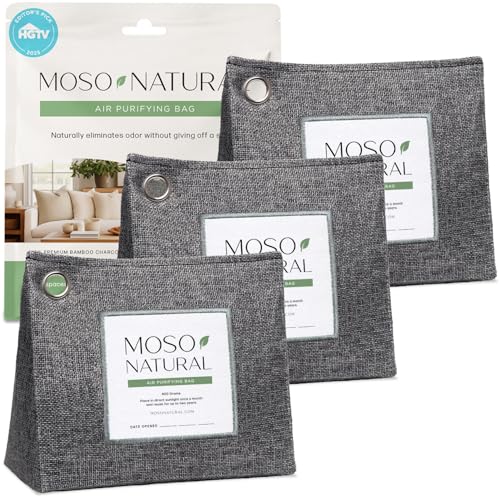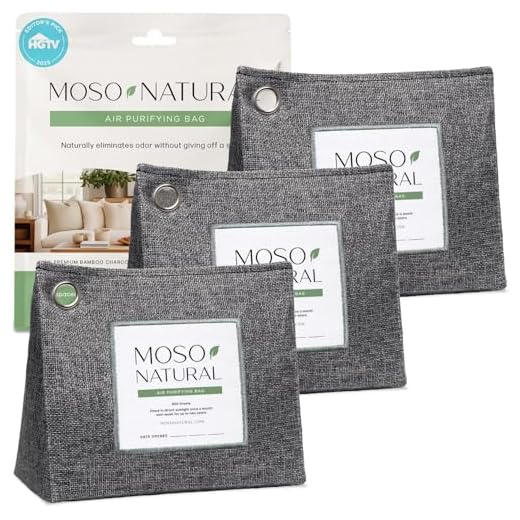








Lavender stands out as a calming choice for your pets. It not only soothes their nerves but also helps with anxiety. A few drops of diluted lavender oil in a diffuser can create a serene environment for both you and your companions.
Another excellent option is chamomile. This gentle fragrance is known for its relaxing properties and can be beneficial during stressful times, such as during thunderstorms or fireworks. A chamomile tea bag placed in a warm area can subtly infuse your space with its comforting aroma.
Avoiding harmful substances is crucial. Citrus scents, including lemon and orange, can cause gastrointestinal upset for many pets. Instead, consider vanilla or cedarwood, both of which offer pleasant notes without risking your furry friend’s health. Always ensure any fragrance used is pet-friendly and applied in moderation.
When using any aromatic products, observe your pets closely. If they show signs of discomfort, discontinue use immediately. Creating a peaceful atmosphere should never come at the expense of their well-being.
Safe Aromas for Your Furry Friends
Lavender is a calming choice. It has been known to reduce anxiety in pets. Just a few drops in a diffuser can create a serene environment, perfect after a hectic day. However, ensure the area is well-ventilated, as strong concentrations can be overwhelming.
Chamomile offers similar benefits. This gentle fragrance is soothing and can help with sleep. Consider using chamomile essential oils in a diluted form for a relaxing atmosphere.
Rosemary is another friendly option. It can act as a natural insect repellent while providing a pleasant aroma. This herb can be used in sachets or as a diluted oil, keeping your home smelling fresh while protecting your pets from unwanted pests.
When using any fragrance, moderation is key. Always observe your pet’s reaction. If they show signs of discomfort, such as sneezing or unusual behaviour, discontinue use. Regularly ventilate spaces where scents are used to ensure fresh air circulation.
| Aroma | Benefits |
|---|---|
| Lavender | Calming, anxiety-reducing |
| Chamomile | Soothing, sleep aid |
| Rosemary | Insect repellent, refreshing |
Always consult with a vet before introducing new fragrances to your home. They can provide tailored advice based on your pet’s health and preferences. Prioritising their comfort will ensure a harmonious living space for both you and your beloved companions.
Understanding the Impact of Scents on Pets
Introduce calming aromas like lavender and chamomile in your home to create a tranquil environment. These fragrances can help reduce anxiety in furry friends, especially during stressful situations like thunderstorms or fireworks. Always ensure to use essential oils in a diffuser, as direct application can be harmful. Avoid using concentrated oils that are overly fragrant, as pets have a more sensitive sense of smell than humans.
Potential Risks of Certain Aromas
Many popular fragrances can be harmful to your pets. Citrus scents, including lemon and orange, may cause digestive upset or skin irritation. Similarly, oils from the tea tree plant can be toxic, leading to serious health issues. It’s crucial to research any new aroma before introducing it into your space. Always consult your vet if unsure about a specific scent.
Choosing the Right Products
Opt for pet-friendly products when it comes to air fresheners and candles. Look for brands specifically designed with your pets’ health in mind. Additionally, consider incorporating natural alternatives like baking soda or vinegar for odour elimination. This not only keeps your home smelling fresh but also protects your beloved companions. Remember to balance the environment with your pets’ well-being, ensuring they feel comfortable and secure. If you’re looking for great deals on quality pet food, check out best budget canned dog food options that can complement a safe and healthy lifestyle.
Top Safe Essential Oils for Pets
Peppermint oil stands out as a refreshing option. It can help repel insects and offers a cool sensation, making it great for keeping those pesky bugs away. Just remember to dilute it properly before use.
Lavender
This calming fragrance is a favourite among many pet owners. Lavender can help reduce anxiety in both furry companions and humans. A few drops in a diffuser can create a soothing atmosphere during stressful situations like thunderstorms or fireworks.
Frankincense
Renowned for its grounding properties, this oil can promote relaxation. Just a small amount in a diffuser can create a serene environment. It’s also known for its potential benefits in supporting the immune system.
Always consult a veterinarian before introducing any new aroma into your pet’s environment. It’s essential to monitor their reactions closely. If any signs of discomfort arise, discontinue use immediately.
Common Household Scents to Avoid Around Pets
Strong fragrances from certain plants can be detrimental. Lilies, for instance, are toxic to felines, causing severe kidney damage. While they might make your home smell delightful, their presence can be hazardous.
Citrus aromas from fruits like oranges and lemons can irritate the olfactory senses of both dogs and cats. Many pets dislike these scents, leading to stress or even gastrointestinal issues if ingested.
Artificial air fresheners often contain chemicals that can be harmful. Ingredients such as phthalates and formaldehyde may not only affect your furry companions but can also impact human health. Opting for natural alternatives is a wise choice.
Some essential oils, while pleasant for humans, pose risks. Tea tree oil can lead to tremors or even liver damage in pets. Even diluted versions should be used with caution, as pets are more sensitive to these substances.
Vinegar has a strong odour that many animals find unpleasant. While it works as a cleaning agent, using it excessively can create a stressful environment for your furry friends.
Spices like cinnamon and nutmeg can be harmful if ingested in significant quantities. While a sprinkle may not cause immediate harm, it’s best to avoid exposing pets to these strong aromas.
Lastly, avoid burning candles made with synthetic fragrances. The soot and chemicals released can irritate respiratory systems of your pets, especially those with pre-existing conditions.
How to Use Scents Safely in a Pet-Friendly Home
Start by opting for natural options. Use fresh herbs like rosemary and lavender to create a pleasant atmosphere without risking harm to your furry companions. These plants not only smell delightful but also act as natural repellents for pests, making them a dual-purpose choice.
Ventilation is Key
- Always ensure good airflow in your home. Open windows and doors to allow fresh air to circulate, especially after introducing any new aroma.
- Use fans to disperse any fragrances quickly, reducing the concentration in any given area.
Monitor Reactions
Observe your pets when using new fragrances. Look for signs of discomfort such as sneezing, coughing, or changes in behaviour. If your pet shows any adverse reactions, remove the source immediately.
Consider using diffusers with caution. If you choose to use a diffuser for essential oils, ensure it operates at low concentrations. Keep it in a separate room where your pets do not frequent, allowing them to escape any overwhelming scents.
- Limit the duration of use to prevent your home from becoming saturated.
- Choose oil blends that are known to be non-toxic and beneficial for animals.
When cleaning, opt for unscented or mildly scented products. Harsh chemicals can linger in the air and may cause irritation. Vinegar and baking soda are excellent alternatives for a fresh smell without the risks associated with synthetic fragrances.
Incorporate pet-friendly air fresheners. Look for products specifically labelled as safe for pets. These often contain natural ingredients and are less likely to cause adverse reactions.
Finally, maintain a routine for your furry friends. Familiarity with their environment helps them feel secure. Sudden changes in aroma can cause stress, so gradually introduce any new scents and observe their responses.
Signs of Scent Sensitivity in Cats and Dogs
Observe your furry friend’s behaviour closely. Excessive sneezing, paw lifting, or sudden attempts to escape a room may signal discomfort. Watch for signs such as excessive grooming, particularly if your pet starts licking their paws or body after exposure to particular aromas.
Changes in appetite can also be a red flag. If your pet suddenly loses interest in food or treats, it might be reacting negatively to certain odours. Additionally, vocalisations like whining or growling when encountering specific fragrances can indicate distress.
Physical reactions such as drooling or foam around the mouth may point to an unpleasant experience. Keep an eye on their eyes; squinting or watery eyes can suggest irritation caused by strong smells.
Pay attention to their overall behaviour. If your typically playful companion becomes withdrawn or anxious after exposure to certain aromas, it might be time to reassess your home environment. Creating a comfortable space free from overwhelming odours is key to ensuring their well-being.
Always consult with a veterinarian if you suspect any adverse reactions. They can provide guidance tailored to your pet’s needs and recommend strategies for maintaining a pleasant atmosphere in your home.








